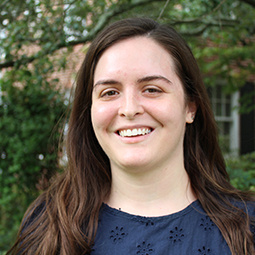
Catherine Hartman
Assistant Teaching Professor, North Carolina State University
The National Resource Center for The First-Year Experience and Students in Transition is pleased to now offer online courses on current topics related to the first-year experience and students in transition.
Our online courses are designed to be as close as possible to in-person instruction—providing attendees with the same content and opportunities to interact with classmates and the instructor—and are enhanced with pedagogy and teaching techniques that are uncommon or impractical in a traditional classroom format. These courses typically run between four and five weeks, with the majority of instruction occurring in an asynchronous environment. Asynchronous instruction is neither time-bound nor location-bound and does not require the simultaneous participation of all students and instructors. It uses tools such as email, threaded discussions/forums, listservs, and blogs.
Participants will earn 1.5 continuing education units.
Each online course has limited registration, so early registration is encouraged.
Transfer students are a significant and growing undergraduate population on campuses across the U.S. Promoting transfer student success requires institutional agents to understand and support students’ navigation of the transfer process and their acclimatation to new institutions. As such, this course will provide foundational information about transfer, including national trends in transfer. Participants will also explore characteristics of transfer students, assets they bring with them to their institutions, and institutional barriers that impact their success. Participants will engage in learning activities and create equity-minded actionable plans that reinforce support for transfers.
As a part of this course, participants will:
Course materials will be provided.

Assistant Teaching Professor, North Carolina State University
Catherine Hartman is an Assistant Teaching Professor of Community College Leadership and Faculty Scholar at the Belk Center for Community College Leadership and Research. Catherine’s research focuses on community college student persistence and engagement, community college student transfer to four-year schools, and community college leadership. Prior to coming to NC State, Catherine served in various positions at the National Resource Center for The First-Year Experience and Students in Transition at the University of South Carolina, the Center for Community College Student Engagement, the Charles A. Dana Center, and William & Mary.
Registration Deadline: March 28, 2024
Course Capacity: 35 registrants
Fee: $425
This course will review the various transitions that may occur within the NCAA Athlete experience such as the transition from high school to college, the transition into eligibility requirements and the transition for international student-athletes. The course will also provide an introduction to NCAA initial and continuing eligibility requirements as well as an overview of Academic Progress Rate (APR) and NCAA bylaws that would impact academic advisors. Finally, it will allow participants the opportunity to share their views of working with student-athletes and gain a better understanding of how to support them.
As a part of this course, participants will:
Course materials will be provided.

Associate Athletic Director, Student-Athlete Academic Services, Kent State University
Amy Densevich currently serves as the Associate Athletic Director at Kent State University and has dual roles as a sport administrator and academic advisor. Within the academic advising role she is responsible for education and tracking of NCAA continuing eligibility policies, as well as academic mentoring for student-athletes across six teams. She is also the advisor of the International Student-Athlete program and the graduate academic intern program. Amy is a member of the National Association of Academic Advisors for Athletics (N4A) and in June 2015 completed N4A’s Professional Development Institute (PDI).
Prior to her return to Kent State and higher education, Amy taught special education in a K-12 setting for the Hudson City School District for seven years while also serving as the head softball coach. A former softball student-athlete, Amy returned to Kent State as an assistant softball coach after her teaching career. Amy earned both her Bachelor of Science in Education and Master of Education degrees from Kent State University.
Registration Deadline: April 23, 2024
Course Capacity: 35 registrants
Fee: $425
This course is designed for student affairs practitioners and student support service providers in the field of higher education who seek to gain understanding of the staff and student experience at Historically Black Colleges and Universities (HBCU). It explores theoretical perspectives and practical approaches to serving the HBCU student population through frameworks related to academic success, advising, mentoring, student support, and student engagement. We will examine the history, culture, and impact of HBCUs on education and its critical role in American history and society. Students will be expected to evaluate high-impact practices (HIPs) currently being used at HBCUs and analyze creative strategies for better engaging students of color. This course will incorporate diverse perspectives, including faculty, staff, alumni, and guest speakers from HBCUs.
As a part of this course, participants will:
Course materials will be provided.

Assistant Vice President in Student Affairs, Tennessee State University
Tasha A. Carson, Ph.D., is a noted strategist, solutionist, and higher education enthusiast. She currently serves as the Assistant Vice President in the Division of Student Affairs at Tennessee State University. As a speaker and trainer, she has presented at national conferences and numerous HBCUs throughout the country, including Langston University, Fisk University, Bethune-Cookman University, Shaw University, and North Carolina Agricultural and Technical State University, on an array of topics ranging from student leadership to staff development.
With a nearly 12-year career established on integrity, student-centeredness, and organizational theory, she is an emerging leader in the field of higher education. Dr. Carson is a two-time graduate of North Carolina Central University, where she earned a masters in counseling education and two undergraduate degrees in political science and sociology. She earned her Ph.D. in urban higher education from Jackson State University. As a devoted lifelong learner, she holds two leadership certifications from HarvardX and a wealth of continuing education completions.
Registration Deadline: May 21, 2024
Course Capacity: 30 registrants
Fee: $425